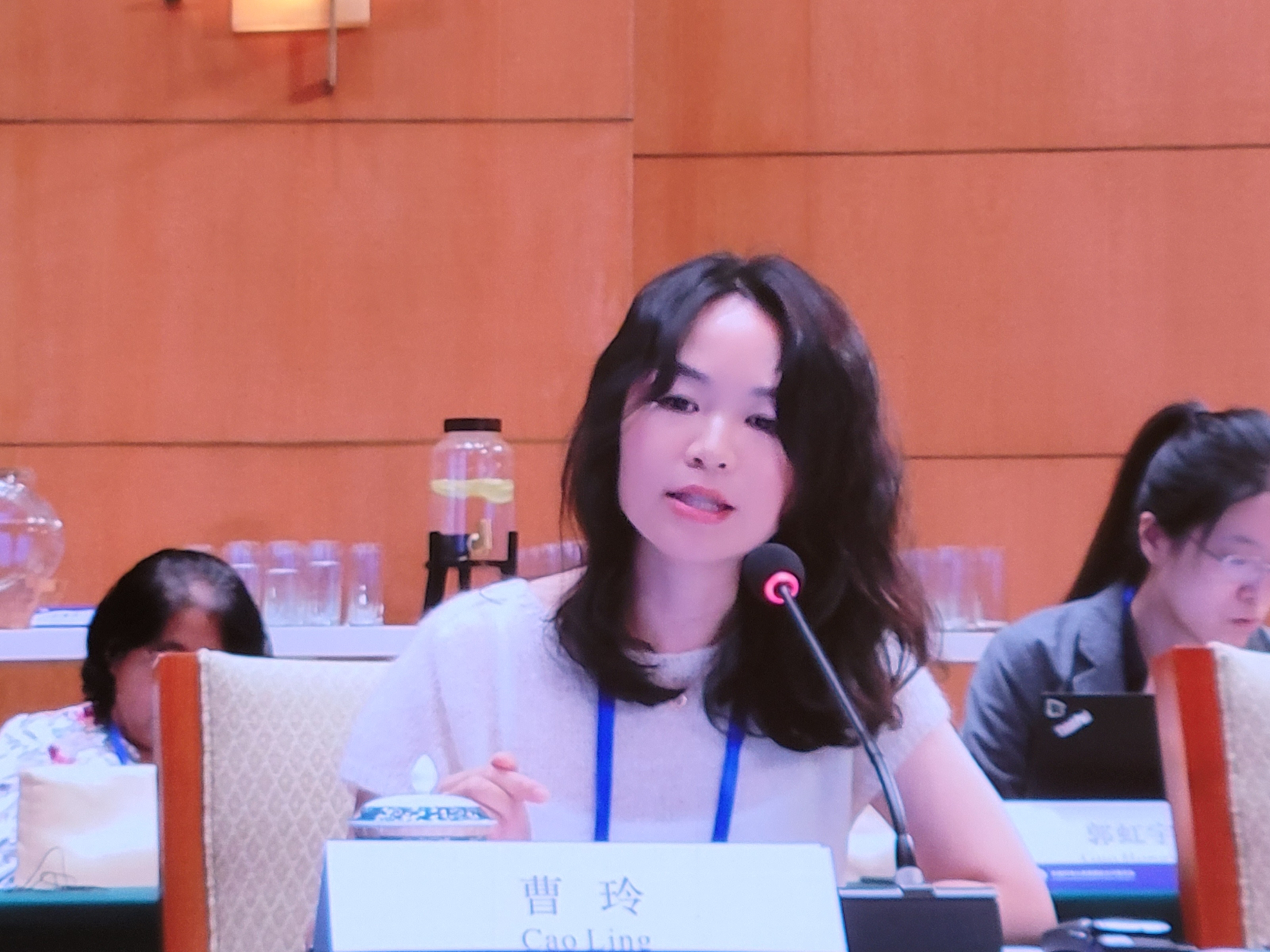Cao Ling of Xiamen University: Far-reaching sea aquaculture should scientifically plan space to reduce the impact on important ecological areas
In September this year, the "Opinions of the General Office of the State Council on Implementing the Big Food Outlook and Building a Diversified Food Supply System" proposed to accelerate the development of far-reaching sea aquaculture, scientifically develop food resources in rivers, lakes and seas, strengthen the research and development of key facilities and equipment for far-reaching sea aquaculture, and develop Deep-water wind-resistant cages, steadily promote the construction of large truss-type cages and breeding work ships, and build offshore pastures and "blue granaries". "Far-reaching marine aquaculture" is also one of the topics of this special marine policy research of the China Council for International Cooperation on Environment and Development (hereinafter referred to as the CCICED).

The picture shows Cao Ling giving a report on important topics during the annual meeting of the CCICED. Photo by Lu Wangshu
At present, marine aquaculture is mainly concentrated in coastal areas. In the past, some high-density coastal aquaculture developed in disorder has caused a series of problems such as water pollution, habitat encroachment, and sea use conflicts. Therefore, far-reaching sea aquaculture is gradually emerging. Carrying out aquaculture activities deeper and farther offshore can make use of the excellent water exchange capacity of open sea areas to reduce the impact on the environment, and at the same time improve the quality of aquatic products.
"At present, China already has the technical foundation for equipment manufacturing and variety breeding for far-reaching marine aquaculture, but it still lacks a comprehensive scientific spatial planning strategy and a mature commercial operation model." Cao Ling, a member of the CCICED Ocean Special Policy Research Group and professor of the School of Ocean and Earth at Xiamen University, said at the theme forum of the CCICED 2024 Annual Meeting.
To this end, the CCICED Marine Special Policy Research Group (hereinafter referred to as the Research Group) established a working group around far-reaching marine aquaculture, focusing on promoting the transformation of the blue economic sector to sustainable development and accelerating the low-carbon development of the marine industry. At the same time, it proposed scientific evaluation of aquaculture activities. Ecological environmental effects ensure that the transition to far-reaching marine aquaculture can be maximally coordinated with marine ecological protection and reduce carbon emissions from aquaculture activities and upstream and downstream industries. And explore policy recommendations such as the possibility of implementing negative emission mariculture in the deep sea.
"We have identified the disaster reduction risks of far-reaching mariculture from three aspects: ecological, economic and social, with a view to assisting future policy planning to avoid these risks. Among them, in terms of ecological risks, one of the most typical ecological risks in far-reaching mariculture is the use of wild bait fish resources. Many of these feed raw materials have a high environmental footprint or carbon footprint. At the same time, far-reaching sea aquaculture not only causes ecological risks through the use of external biological resources, but also the ecological risks posed by the breeding facilities themselves to the surrounding environment are worthy of attention." Cao Ling introduced.
In this regard, the research team also put forward relevant policy recommendations, including accurately assessing the utilization efficiency of different types of marine aquaculture on natural resources, identifying aquaculture types suitable for shifting to far-reaching seas and aquaculture types suitable for remaining onshore and land-based, and implementing orderly Classification governance orientation; Strengthen the spatial planning of far-reaching marine aquaculture, pay special attention to interactions with ecologically important areas such as the periphery of marine protected areas, important biological habitats and migration channels, and explore synergies and mutual benefit with industries such as ecotourism and marine energy; promote research on cutting-edge technology of marine engineering equipment for far-reaching marine aquaculture, especially suggestions on strengthening protection against extreme weather events and the use of renewable clean energy.
"We should continue to integrate ecosystem protection and the sustainable development goals of the entire industry value chain, and formulate a systematic layout for far-reaching marine aquaculture industry governance. Secondly, continue to scientifically plan the sea space for far-reaching marine aquaculture, reduce the impact on ecologically important areas, and explore synergies with other industries such as marine clean energy to reduce the carbon footprint of far-reaching marine aquaculture." Cao Ling said.







